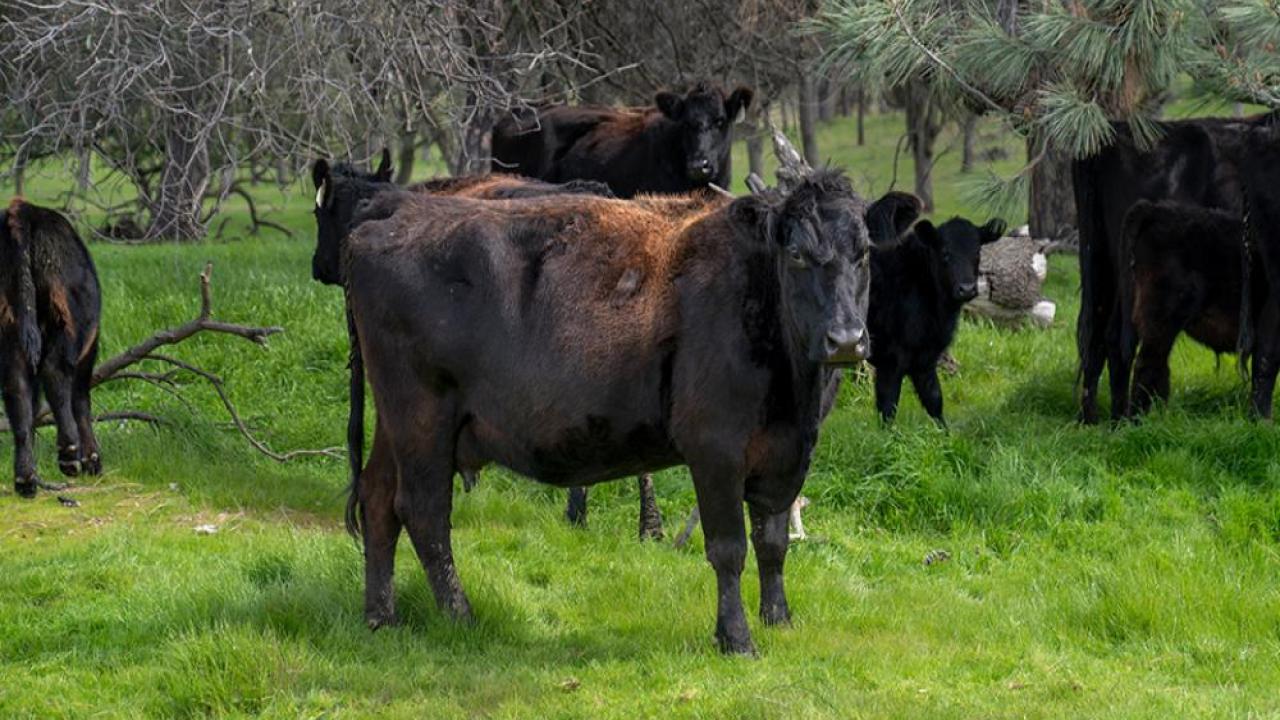Cattle are the largest agricultural source of greenhouse gasses worldwide. Experts at UC Davis, a university affectionately called Cow Town by many of its students, are looking into how to reduce the environmental “hoofprint” of cattle production.
From seaweed to soil, these experts’ efforts are described in a feature story, “Cows and Climate Change” by UC Davis agricultural writer Amy Quinton. The story highlights projects like these:
- Frank Mitloehner, professor in Animal Science and Air Quality Specialist at UC Davis, is working toward making cattle more sustainable by quantifying the methane emissions that cows burp using specialized equipment.
- Ermias Kebreab, professor in Animal Science and Deputy Director of the Agricultural Sustainability Institute is conducting research on the effects of adding seaweed supplements to cows’ diets. So far, Kebreab has completed “one trial and showed that there is up to a 60 percent reduction in methane emissions by using 1 percent of seaweed in the diet.” Essentially, the seaweed makes the cows less gassy without affecting the taste of the milk.
- Ken Tate, a rangeland watershed specialist at UC Davis, has found ways to counterbalance the environmental impact of cows by protecting the very land the cows graze upon. “One of the best and most simple things we can do on rangelands to help mitigate climate change is to conserve rangeland ecosystems and keep the carbon that’s already stored in rangeland soils safely stored there,” he said.
Additional UC Davis research suggests another measure that can improve rangelands. Ben Houlton, director of the UC Davis John Muir Institute of the Environment, is working with UC Berkeley Professor Whendee Silver and other collaborators across the state to investigate the effects of different additives to the soil. Silver says they “found that adding organic waste — food waste, green waste, livestock manure — as composted soil amendments could save the equivalent of 28 million tons of carbon dioxide using just 5 percent of California’s rangelands.”
And a recent study from soil science professor Kate Scow and colleagues found that compost may very well be key to sequestering carbon in the soil.
Hungry for more? Tune in September 17 for the launch of UC Davis’ new podcast, Unfold, where hosts Amy Quinton and Alexa Renee talk with UC Davis researchers working on new technologies and innovations to help feed more people while sustaining the planet. Episode 1 asks the question: “What’s the beef with beef?”
Media Resources
Leigh Houck is a science communication intern with UC Davis Strategic Communications.
